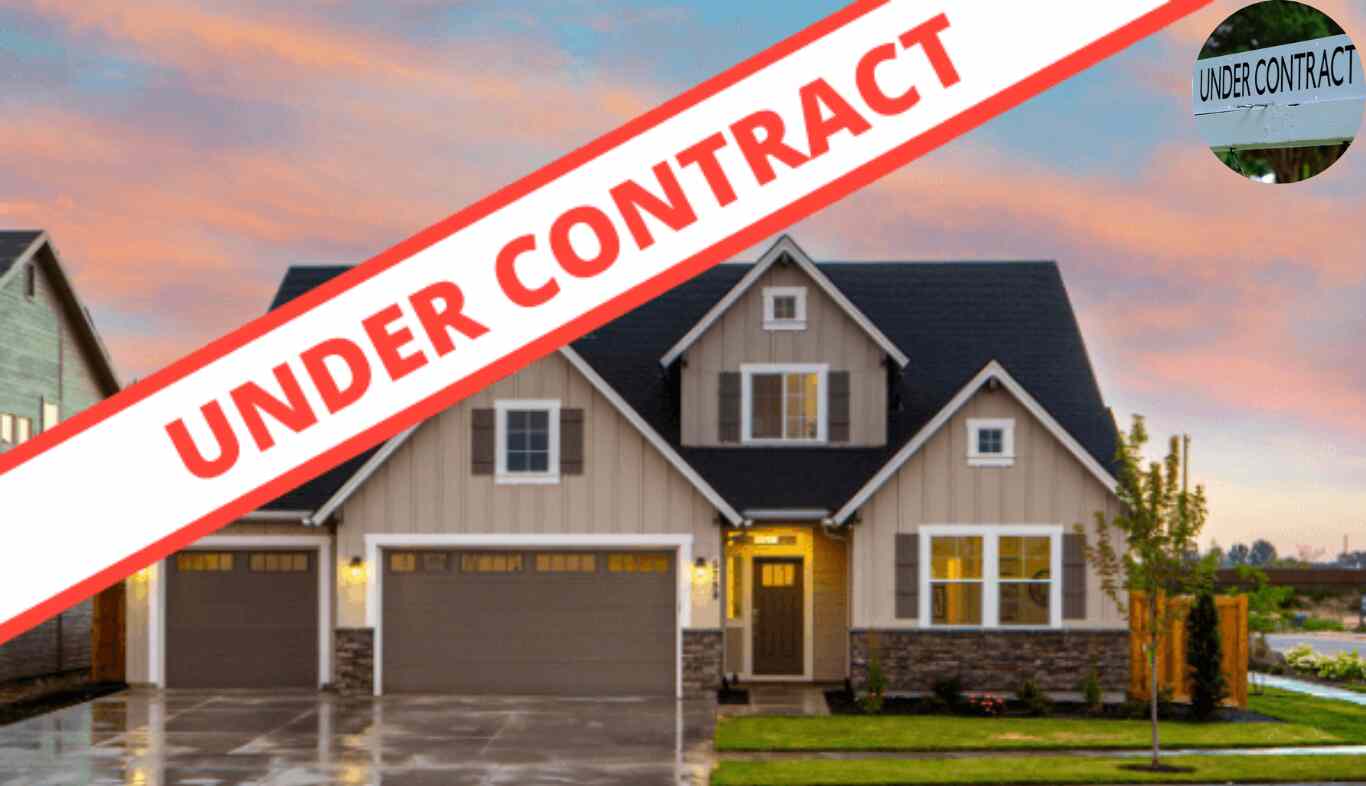The contract period is an important time in the real estate transaction, from the acceptance of an offer to the closing. But how much time does it actually take?”
Purchasing or selling a home is one of life’s major decisions, and there are a number of important steps involved in the process that can make it exhilarating and daunting at the same time. One of those phases is when a house is officially “under contract.” But what does that really mean, and how long does it take from contract to closing?
Though the average wait is generally between 30–60 days, several things can affect the timeline: financing, inspections, and market conditions. As a buyer or a seller, having a grasp of this process can help prepare you for potential delays and set realistic expectations.
What Does “Under Contract” Mean?

“Under contract” means that the buyer and seller have mutually agreed to the terms of the sale and that a legally binding agreement has been reached. But the property isn’t sold yet — there are several steps to finish before closing.
Important Phases in the Process of Being Under Contract
Purchase Agreement
This document will detail the terms of the sale, including price, contingencies and deadlines.
Contingencies
These are conditions to be fulfilled for completing the vendition process. Common contingencies include:
- Financing approval.
- Home inspections.
- Appraisal results.
- Title Search to confirm no ownership disputes.
- Also read (house of london)
Why Is This Stage So Very Important?
Understanding what “under contract” means is important because it manages expectations for both buyers and sellers. There are a lot of moving parts at this stage, and delays can happen if contingencies aren’t met. Knowing what to expect makes for a much smoother experience all around with less surprises.
Average Time Span: Average Timeline for Houses Under Contract

Several factors impact how long a house stays under contract. Though the average time is usually between 30 and 60 days, this can vary considerably depending on the transaction details.
Typical Timings Depending On Situations
- Standard Mortgage-Backed Transactions: 30–45 days.
- Cash Deals: 10 Days — At Least, Since No Approval Is Required.
- Extended Timelines: In some instances, the timeline can go 60–90 days or more due to delays with financing, inspections or appraisals.
What Affects the Timeline See Also
Financing
Also, mortgage approvals typically take 30–45 days, depending on the lender and the buyer’s finances.
Inspections and Appraisals
Home inspections usually take place over 7–14 days, and appraisals can take 7–10 more days.
Title Search
This process makes sure the property has no liens or ownership disputes and usually takes 10–14 days.
Market Conditions
In a hot market, buyers and sellers can be quick. In a slower market, however, transactions may take longer.
Major Factors Influencing Contract Time

Financing Contingencies
Getting the mortgage is usually the longest process. Delays can occur due to:
- Credit issues.
- Income verification.
- Slow lender response times.
Inspections and Repairs
Following the first examination of the home, problems may come up that need the buyer and seller to negotiate. For example:
- When it comes to repairs, minor ones can be done on the same day; however, larger ones may take a couple of days.
- Big repairs (a roof replacement, for example) may take weeks.
Appraisals
Appraisals are performed by the lender to make sure the home’s value is in line with the price you agreed upon. If a buyer’s appraisal comes in below expectations, the buyer and seller might have to renegotiate.
Title Issues
Issues with the title—like unsatisfied liens or unclear ownership—can add considerable time to the closing process. And those issues have to be resolved before the transaction can close.
Market Dynamics
- Cash buyers typically close more quickly because they don’t require financing.
- Seasonal shifts (think: spring and summer tend to be busier) can affect how quickly professionals, including inspectors and appraisers, are available.
Time Issues During the Contract Period

But with a smooth process, delays are possible. Here are a few of the most common culprits:
Financing Issues
Lenders could turn down a buyer’s loan application outright or ask for more documentation, which keeps transactions in limbo.
Inspection Negotiations
And arguments over repairs or renegotiating terms can delay the process.
Appraisal Gaps
If it comes in lower than the price the two of you have agreed upon, the buyer might have to find more cash or go back to the table and negotiate.
Title Problems
Such liens, or claims of ownership disputes, can keep the title from being cleared.
Buyer/Seller Delays
Communication breakdowns or unmet deadlines from either party can put a drag on things.
How to Alleviate the Contract Process
Buyers and sellers should take steps to make sure the contract period goes as quickly as possible.
For Buyers
- Get Pre-Approved: Getting financing in hand before making an offer allows the process to move quickly.
- Waive Contingencies: In competitive markets, waiving certain contingencies (such as the inspection) might get the deal signed faster — but carries risks.
For Sellers
- Perform Pre-Listing Inspections: Identifying and fixing any potential issues before listing can go a long way in preventing hiccups after a property is on the market.
- Be Flexible with Closing Dates: Going along with a buyer’s timeline can smooth negotiations.
For Both Parties
- Keep Everyone Updated: Not staying in touch with buyers, sellers and agents can lead to confusion.
- Utilize Expedited Services: If time is critical, pay for the rush appraisals or title searches.
Table Key stages and timelines
| Stage | Typical Duration | Potential Delays |
|---|---|---|
| Financing Approval | 30–45 days | Credit issues, slow documentation |
| Home Inspection | 7–14 days | Negotiations over repairs |
| Appraisal | 7–10 days | Low valuation |
| Title Search | 10–14 days | Ownership disputes, liens |
Conclusion
Related Questions: “How Long Can a House Be Under Contract? doesn’t have a single answer that fits all. Average time frame is about 30–60 days, depending on the type of financing, inspections, market conditions, etc.
In order to help facilitate this process, buyers and sellers need to be proactive, communicative, and work in close contact with your real estate professionals. Once you know what the typical pitfalls and remedies are, heading off delays and closing successfully will feel much more manageable.
Also read (deed of house)
